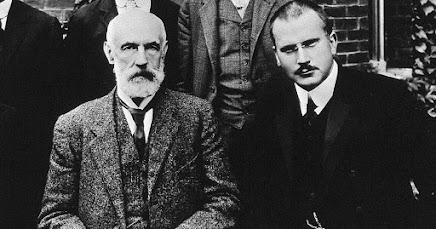Blog #2 : Scouting the Territory
Out of the many topics I wrote about in my last blog post, I’ve decided to pick déjà vu. With déjà vu I feel like I can go in depth with the psychology behind it and also since déjà vu is such a well known topic that many people have experienced, it would be cool to be able to tell people about why this happens to us.
Some key terms that can be associated with déjà vu are memory, false memories, and psychology. The term “déjà vu” is french for “already seen” so the term memory fits into this phenomenon by acting as if we have already been through a certain event, but possibly our memory was not good enough to realize this. False memories was an interesting term to me and definitely a term I want to focus more on because it takes a different approach by stating that we are creating these false memories and acting as if it is our memory. We sort of trick our minds into thinking we have been through a certain event already, but we’re not exactly sure how which leaves us with this confusing, weird feeling. This leads me into the third term which is psychology, another term I want to heavily focus on. The psychology and science behind why people experience déjà vu is very interesting and from watching a Tedx Talk by Dr. Anne Clearly I was able to gain more insight into what kinds of groups experience déjà vu more. I learned that déjà vu was most experienced by people who travel often and people who watch a lot of movies. I thought this was interesting because I experience déjà vu here and there, and I watch a lot of movies and travel quite often, so to me this makes sense. She also went into different studies and theories that explain the psychology behind déjà vu which will be useful to me when I write my paper. On Wikipedia, I found that there are two types of déjà vu: the pathological déjà vu and the non-pathological déjà vu. The pathological type would be associated with epilepsy or hallucinations and it may be an indicator of neurological or psychiatric illness. Whereas the non-pathological type would be targeted more towards people who don't fit the pathological type. I found that there were a bunch of different explanations for déjà vu such as “split perception explanation”, “memory-based explanation”, and “dream-based explanation”.
There are people out there who do believe that déjà vu is not a real thing, possibly because they have not experienced it. There are others who believe that déjà vu is a “glitch in the matrix” which is a cool concept, but I personally don’t think those theories are true.
Some resources I believe would be useful:
https://link-springer-com.proxy.libraries.rutgers.edu/article/10.3758/PBR.16.6.1082
I found this article on the rutgers library website and it gives a good background on the déjà vu phenomenon and also includes different experiments which I think would be very useful in my paper.
I found this book through Google Scholar and reading through the names of the chapter, I think it covers the majority of what I want to talk about in my paper. It gives a good background on déjà vu, why it happens or causes of it, and the psychological variables behind it.




Looks good. I suggested that our librarian visitor focus on this topic during Friday's class, as two students are exploring it. He might pick a different topic, but this is definitely interesting.
ReplyDelete